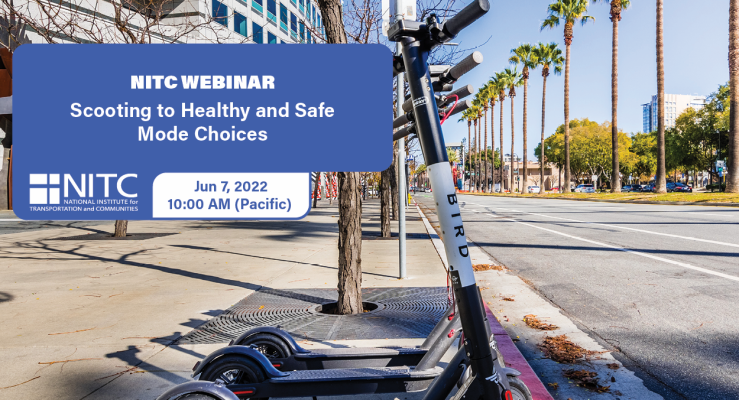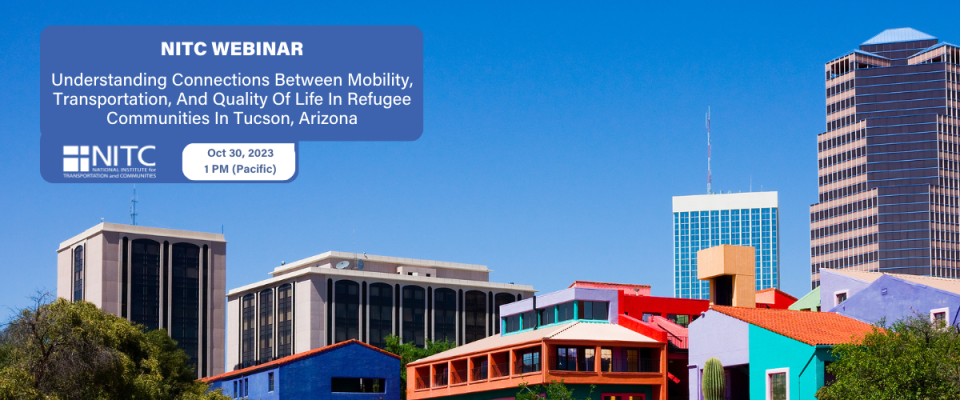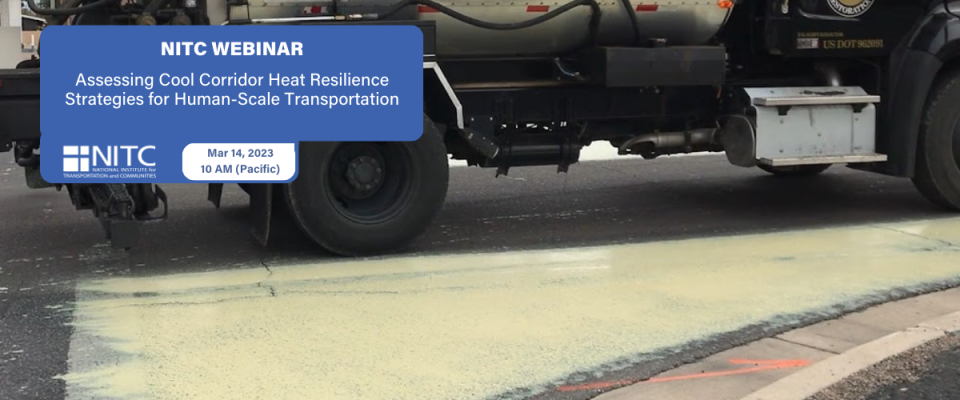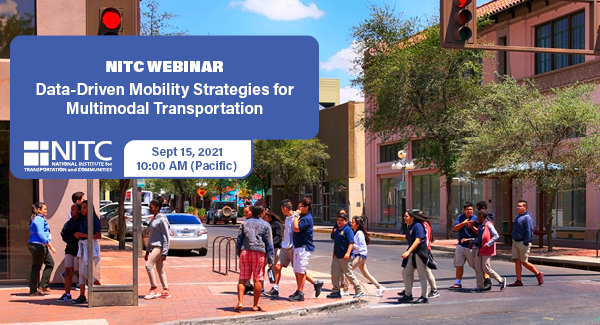PRESENTATION ARCHIVE
OVERVIEW
Shared electric scooters (e-scooters) are fast becoming a mobility option in cities across the United States. This new micromobility mode has the potential to replace car usage for certain trips, which stands to have a positive impact on public health and sustainability goals. However, many aspects of this emerging mode are not well understood.This webinar explores the findings of three NITC studies examining transportation mode choices, safety, and public health outcomes of electric scooters.
KEY LEARNING OUTCOMES
By the end of this presentation, the participant will be able to:
- describe the ways in which electric scooters may provide new substitutive, complimentary or synergist transportation opportunities for different activities...




